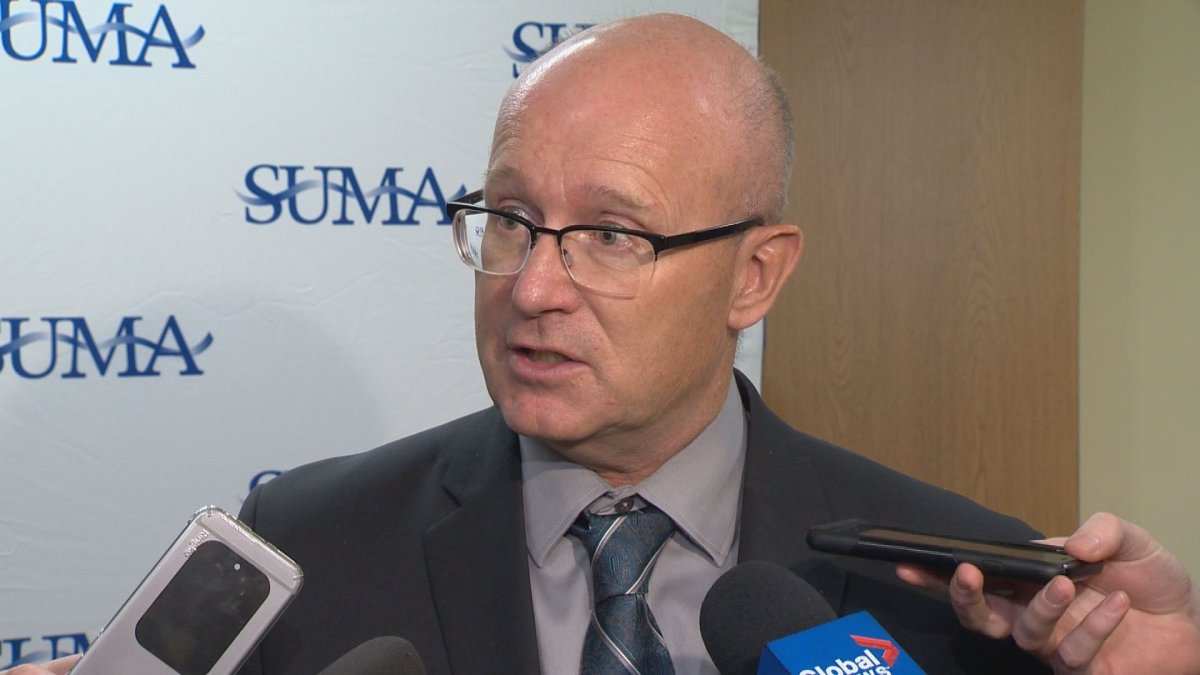Revenue sharing is a key way for municipalities in Saskatchewan to generate income. Each year the province gives millions to municipalities based on PST revenue.

The current formula is a full per cent from the five per cent PST from two years prior. In the 2017/18 budget the municipalities received $257.8 million based on 2015/16 PST revenue.
Now that the PST is six per cent, government relations minister Warren Kaeding said revenue sharing will freeze at the 2018/19 level, $241.1 million, until 2020. The 2019/20 budget would have been the first to incorporate a larger PST into revenue sharing.
On Monday Premier Scott Moe hinted at a renegotiation of the revenue sharing formula. Kaeding said it won’t be a full renegotiation, but more of a retooling.
READ MORE: Premier Scott Moe warns of tough budget; wants to renegotiate revenue sharing
“What we want to do is give everybody an opportunity to provide us some input and provide some predictability over the next couple of years,” Kaeding said.
Moving forward the government will plan to have revenue sharing still be based on PST revenue, but Kaeding said they are open to other ideas.
“If our stakeholders bring some great ideas to the table and it reflects something else that they feel comfortable with, not to say we won’t consider it, but PST is out base standard that we’re working off of,” he said.
When the PST grew, the base also grew to include consumer items like restaurant meals and children’s clothes. Insurance also includes PST now, but Premier Moe has promised to rescind the PST on crop, health and life insurance.
- Budget 2024 failed to spark ‘political reboot’ for Liberals, polling suggests
- Train goes up in flames while rolling through London, Ont. Here’s what we know
- Peel police chief met Sri Lankan officer a court says ‘participated’ in torture
- Wrong remains sent to ‘exhausted’ Canadian family after death on Cuba vacation
Regardless of how PST on insurance is handled, the one per cent slice of the PST pie became sweeter last year.
READ MORE: City of Regina proposes 4.86 per cent mill rate increase
Over the past decade revenue sharing has more than doubled, however, the upcoming fund of $241.1 million is the lowest since 2012. Fougere and Mayor Charlie Clark of Saskatoon both accept the amount falls with the economy.
Clark said with signs of economic recovery there is worry cities, towns and villages will miss out over the next two years.
“I’m concerned about this freeze though because if we see PST go up then we’ve shared on the down – we’re probably about at the bottom now – then we don’t benefit if we see increases in numbers,” Clark said.
While there are still questions about the future direction of revenue sharing, both Fougere and Clark are pleased the province is willing to engage in a consultation process.
The freeze follows a reduction in grants-in-lieu of property taxes for buildings like Crown corporation offices. The announcement caught municipalities off-guard when it was announced in last year’s budget, resulting in millions in lost revenue for affected communities.
Kaeding has said the province is also looking to speak with stakeholders about grants-in-lieu to find a “fair and transparent” solution.





Comments